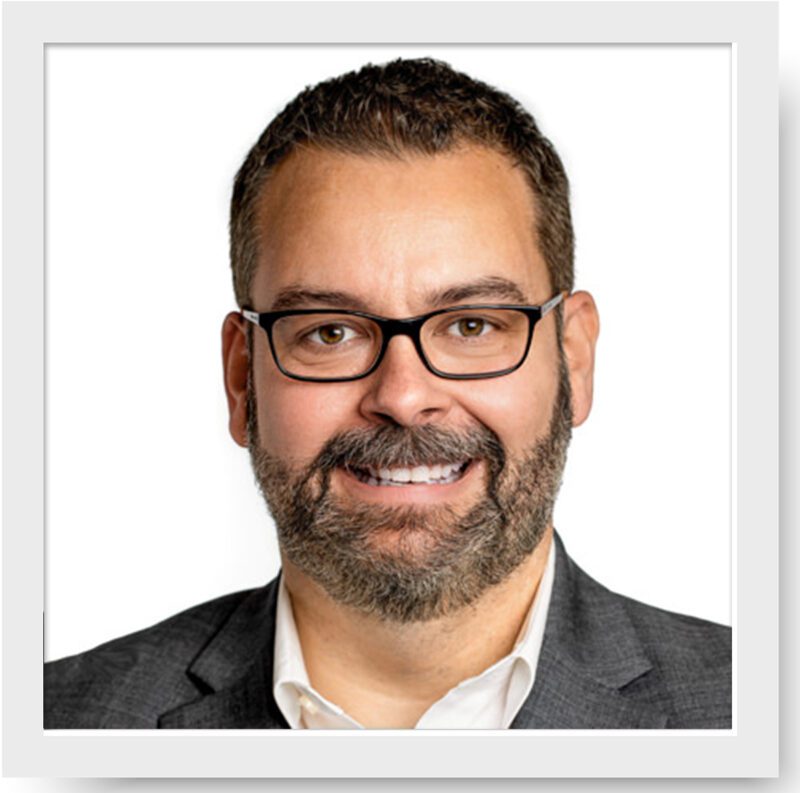
The finalists for WashingtonExec’s Chief Officer Awards were announced March 25, and we’ll be highlighting some of them until the event takes place live, in-person May 11 at the The Ritz-Carlton in McLean, Virginia.
Next is Chief Technology Officer (Private & Public) finalist Erick Peters, who’s CTO at Cognosante. Here, he talks career turning points, breaking rules, career advice and more.
What was a turning point or inflection point in your career?
In 2004, I had recently left active U.S. Navy service. I was halfway through graduate school and anticipating the birth of our first child, but working in a job that was unlikely to turn into a career. I was delivering significant technology solutions, but I didn’t feel that the work would make a meaningful difference in people’s lives. I was passionate about public service and health care, in addition to information technology, and was able to leverage an amazing network to find opportunities where all three could come together.
Although the timing was difficult, taking that risk enabled me to seek my passion, knowing that in health care, I could make a real difference.
In hindsight, this was a mildly terrifying life change, but it was the point when my job became a career. That one move tapped personal motivation that fuels me to this day.
What are you most proud of having been a part of in your current organization?
Cognosante delivers comprehensive and innovative clinical interoperability services. I have been empowered to lead the inception of this practice, help it grow and mature and facilitate the growth of a team to include numerous interoperability experts — all while complementing a personal passion for streamlining clinical data exchange.
Advancing clinical interoperability was a Cognosante founding principle, so turning this strategic vision into a thriving practice that delivers measurable value for our customers and partners has been exceptionally rewarding.
This interoperability focus remains intriguing as it demands agility and focus to continuously deliver new ideas, value and measurably improved outcomes for patients.
How do you help shape the next generation of government leaders/industry leaders?
It is incumbent on all leaders to push the art of the possible, building and mentoring teams that will judiciously and effectively push the status quo. It is a challenging balance to drive solutions through innovation, while propelling domain experts out of their comfort zones. Like all things, inertia can be good or bad, but the negative impacts of stagnation and complacency are the hardest to overcome.
Designing solutions prescriptively and intentionally to deliver value, establishing metrics by which value is meaningfully measured and continually pushing to achieve and exceed those goals is enormously challenging. Hiring, training, coaching and mentoring the next generation of leaders in the art of purposeful and tailorable innovation is more impactful than any cutting-edge technology could ever be.
Which rules do you think you should break more as a government/industry leader?
“The customer is always right.” This might spark controversy, but this oft-overused quote does not account for the collaborations that lead to the best outcomes. Customers are always in charge of achieving exceptional outcomes predicated on their initial vision, but those exceptional outcomes usually require a partnership.
This is especially true of large-scale technical solutions predicated on technical and process innovation, which require not only industry expertise but first-hand experience with a range of solutions that could be applied to solve the problem.
It is critical to work closely with customers and partners to identify synergistic solutions and guide all stakeholders through change. Balancing the needs of the end users or beneficiaries with the pressures our customers face and the optimum path we seek is the highest challenge. Steve Jobs once said: “It doesn’t make sense to hire smart people and tell them what to do. We hire smart people so they can tell us what to do.”
This could easily be applied to the work we do. “It does not make sense to hire knowledgeable and innovative contractors and tell them what to do. We should hire knowledgeable and innovative contractors to lead us to our vision.” By supporting our customers in doing this, we maximize the value of our ideas, ensuring that we do not tell them what to do, but guide them in how to achieve their goals.
What’s your best career advice for those who want to follow in your footsteps?
Seek your professional passion(s) and work diligently to live with integrity. As a chief technology officer, this should manifest as:
- Personal Integrity: Do what is right
- Professional Integrity: Work openly within the team
- Technical Integrity: Deliver real and tangible solutions
Growth, recognition and opportunity will present themselves if you play the “long game” of doing what is right and measuring progress through the lens of your customers. Keeping this focus is difficult and may mean that it is harder to achieve personal goals in the short term.
Check yourself and your team frequently to ensure you are measuring against the goals of this “long game” and treat the noise of the day-to-day as just that — distracting noise.

